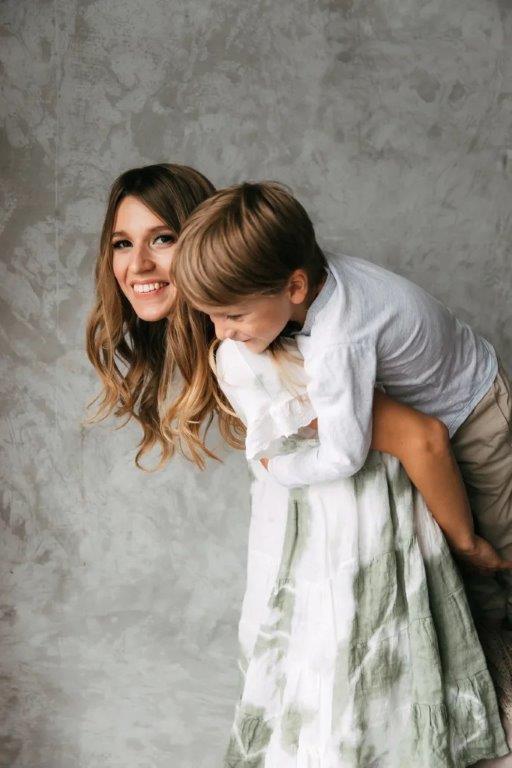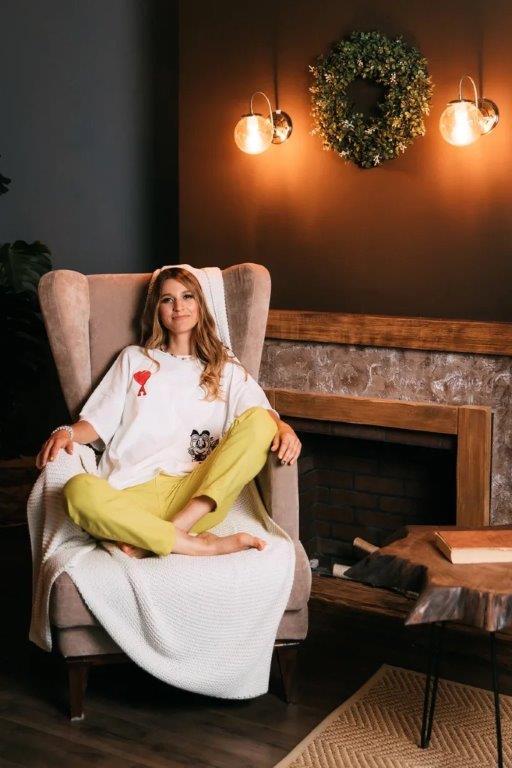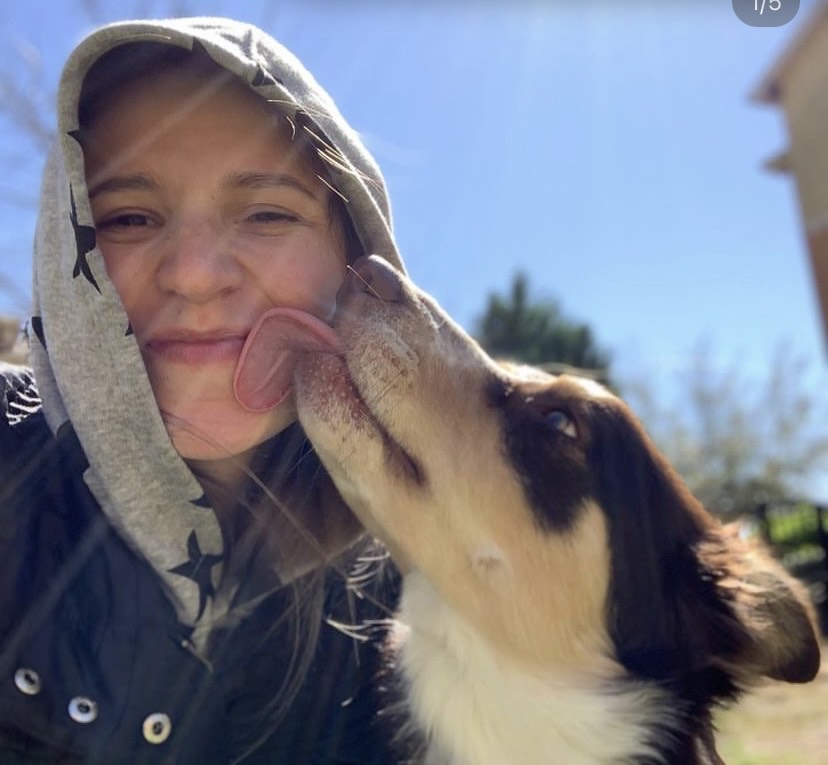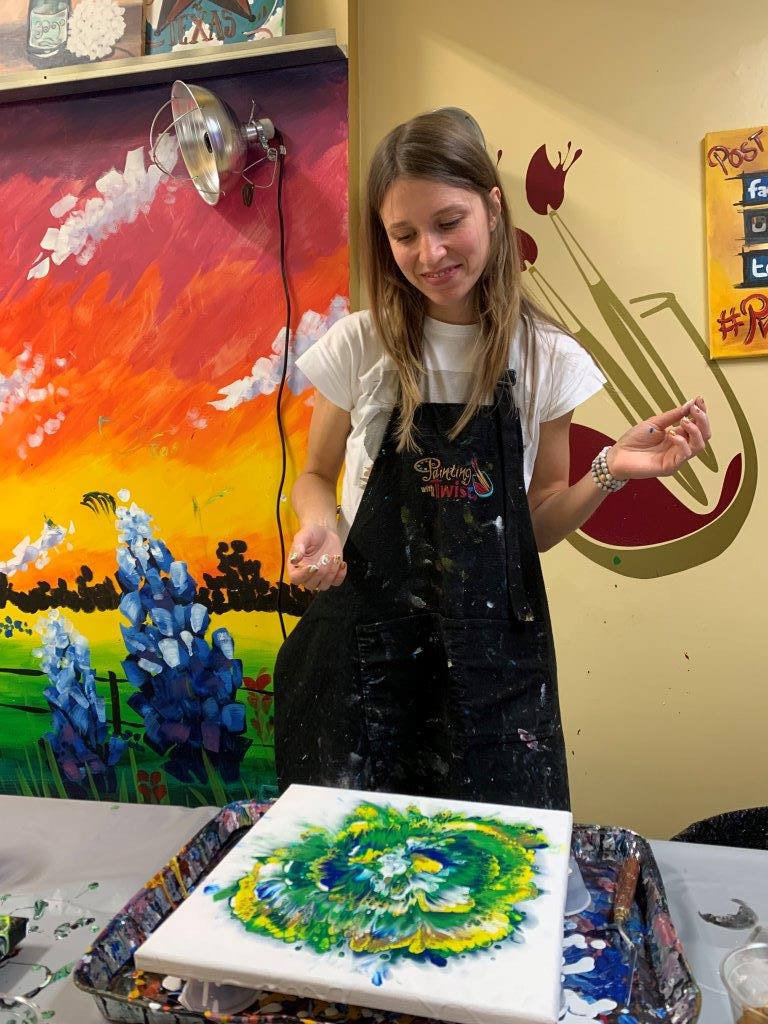
– Anna, tell us your story in America, please. Where did you live and work before Texas?
Greetings, readers of the Russian Austin magazine!
Before Texas, I lived in Siberia, the city of Omsk. I have worked as a supervisor in the advertising business for the last two years. I organized the work and trained novices to become teams that give good results. I am a psychologist by education. I always wanted to work in a psychology field, but when you are young, you often choose the job that pays more, not the one in which the soul lies.
– Was Austin your choice, or is it a coincidence?
It was more like a happy accident. It is not easy to choose a city to live in when you have never been to America and do not know what criteria to follow and what will be important for you in another country.
Seven years ago, when we were choosing where we wanted to start our journey in the USA, Austin was in the top 10 best cities to live in America. Reasons are low prices for rent and purchase of housing, relatively clean environment, low crime rate, availability of work. In addition, many IT companies were already based here. My husband is a programmer, so the variety of vacancies in this area was one of the decisive points while choosing a city.

– What do you like most about Austin?
Austin has become my home. It was always difficult for me to get used to new things, people, and places. Most of all, I like the abundance of different species of plants and animals, ponds, and green belts. Being close to wildlife has become paramount for me for a comfortable life. It seems to me that green parks, trails, bike paths, and the opportunity to feed squirrels and watch deer are always within walking distance in Austin. If I move to another place, I will miss the most this opportunity to enjoy the walks in nature whenever you want.
– Please tell us about your profession and your work.
I completed my master’s degree in psychology in 2013 in Russia. Helping people to discover what doesn’t work in their lives and fix it has always motivated me. I really like to see people having improvements in their relationships or personal efficiency after we talk about what’s happening and how to make it work better. With time I have noticed that a conversation only has not give such a fast and permanent results as working with somatic movement. Realizing a problem and being told how to solve it give only temporary results. That is why I started to look for more body orientated experiences.
Earning “a leader of Emotional Fitness” certificate during the quarantine, I learned some new ways of helping people to clean up their system from what is in the way of reaching their goals. My background in psychology helped me a lot to get this done. In this course we are using special techniques to get rid of stress and stuck emotions such as fear, anger and pain. We discuss how the programs started in us from childhood by parents and society affect decision-making now, when we are already adults and, it would seem, self-sufficient people.
I worked with clients for several months on getting their emotions in shape. Getting rid of fear, pain and childhood traumas to clear the path for what is really important. This practice inspired me very much. It was very joyful to watch people’s progress and growing awareness during the classes. I noticed that a person much more values when he or she sees the answer to their question during the practice. But not when they are told a ready-made solution from the outside. People with whom we worked had results, insights. Some still using the techniques at home. Deep emotions went away and were replaced by relaxation of the body and mind. Thanks to this experience, I realized that I want to be a teacher, to benefit those to whom I can share what I already went through by myself.
Now I work as a Behavioral Therapist. It is a very meaningful job for me. I am implementing so many of my knowledge and experience every day at my work. Working with children with autism, I help them be a part of society, understand other people, solve problems and communicate. It is such a pleasure when you see the result of your work. For example, in May, a boy who could not be in a room with other children came to us. He immediately left or hid in a corner if other kids were around. At the end of August, he was already playing hide-and-seek with other children and collecting puzzles with them. Seeing the result, you understand why you are doing all this and how you can change other people’s lives if you know how to help them. Seeing the meaning of my work is one of the critical criteria for any of my activities. There are not so many thinks that motivates me, and some imaginary things, fortunately, or unfortunately, cannot make me work for them. I need clearly understand what result is expected.

– What difficulties did you have to face in America?
The biggest challenge for me was the language barrier, even though I went to English school from the second grade. And a year before coming to the USA, I started actively visiting conversational English classes. However, when I arrived in the US, I found this was not enough. So all these years, I has been continuing to attend courses and lessons to improve my English.
– How are your relations with the motherland? Do you miss any aspects of life in your home country?
I really miss Siberia, Omsk. My soul is there, and I will not stop wanting to come to my native land, to the house where I grew up. The second reason is parents and friends. The older you are, the more difficult it is to find people with whom you can not only “go out” but also enjoy any conversation with them or engaging in fun activities together. It has always been important to have not just acquaintances around, but those around whom you can be yourself without judgement. If there are no common interests between us or I notice that a person just want to vent, I always ask myself, “Do I want this? Do I enjoy being with them?”
And lastly, this is the help of grandmothers with a child. There is no such concept in America, and when you visit Russia, you forget about who to leave the child with. So there are always close people and grannies.
– Please tell us about your family.
My family is me, my husband, my son, and our dog. My husband, Dima, is a talented programmer. He does jiu-jitsu, plays tennis, and chess. The son’s name is Daniil. Now he is at such an age when he wants to try so many new things that there is not enough time to do all of it. My parents dragged me into so many classes as a child. And my husband’s parents, on the contrary, did not take him anywhere. So we try to balance that in our own family. Daniil now goes to abacus class, chess, piano, ice skating, and homework for each of it.
I love my family. They are the closest people I have. We do everything together, joke, and try not argue if it’s not that important. Without humor and discipline, our family can not do it. In my childhood, communication with my parents was always very serious, so I vowed that it would be different in my family.
We travel ten times more often than when we lived in Russia and take our dog with us when possible. In a family, you need to balance between not losing yourself in other people’s interests and not being too selfish. We’ve been balancing good between these for the last few years, and it’s great!
– What do you do outside of work? What are your interests and hobbies?
One of my hobbies is to go to art classes with my friend Sveta. I graduated from art school, but it discouraged me from doing art at all. I am now restoring my creative flow bit by bit. One other thing is board games. My family loves board games. Always happy to play in good company in Crocodile, Catan, Alyas, Imaginarium, and the list go on. I recently had several ukulele classes with an excellent teacher in Austin. I plan to continue taking the classes, but more free time is needed to have results.

When quarantine began, I discovered the opportunity to take interesting self-development courses online. I went through so many trainings in two years. Some of the titles are family relationships, childhood traumas, blocked emotions, children and gadgets, handstands, healing, meditation, neurogymnastics, nauli, and yoga for beginners. Also, since this year, I have been studying the art of yoga deeply. I am going through certification training with my favorite teachers for the next eight months. Therefore, there might be one more yoga teacher in Austin next year. Yoga used to be just a hobby, but now I have decided to join the Yoga Alliance in America and become a registered yoga teacher (Yoga Alliance RYT).
– What do you think is missing in Austin?
I would like someone to organize a community of board games lovers in Austin. It would be fun to have an opportunity to meet new people who also like playing different board games.
– What are your favorite books?
These two books are my favorites “The Alchemist” by Paulo Coelho and Richard Bach, “The Seagull by Jonathan Livingston.”
– What would you like to wish the Russian-speaking residents of Austin and Texas?
Always remember who you are. Keep the traditions you love. Appreciate your uniqueness, experience, and knowledge. Be patient with others, do not jump to conclusions, and do not hang labels on people in advance. Before making important decisions, make sure that emotions do not guide you at the time. Listen to your heart, and don’t forget your mind. Filter what you think through your heart. Well, don’t forget to have fun, that’s what we’re all here for.
Contact information:
Anna Larionova
Tel.: 5127016425
